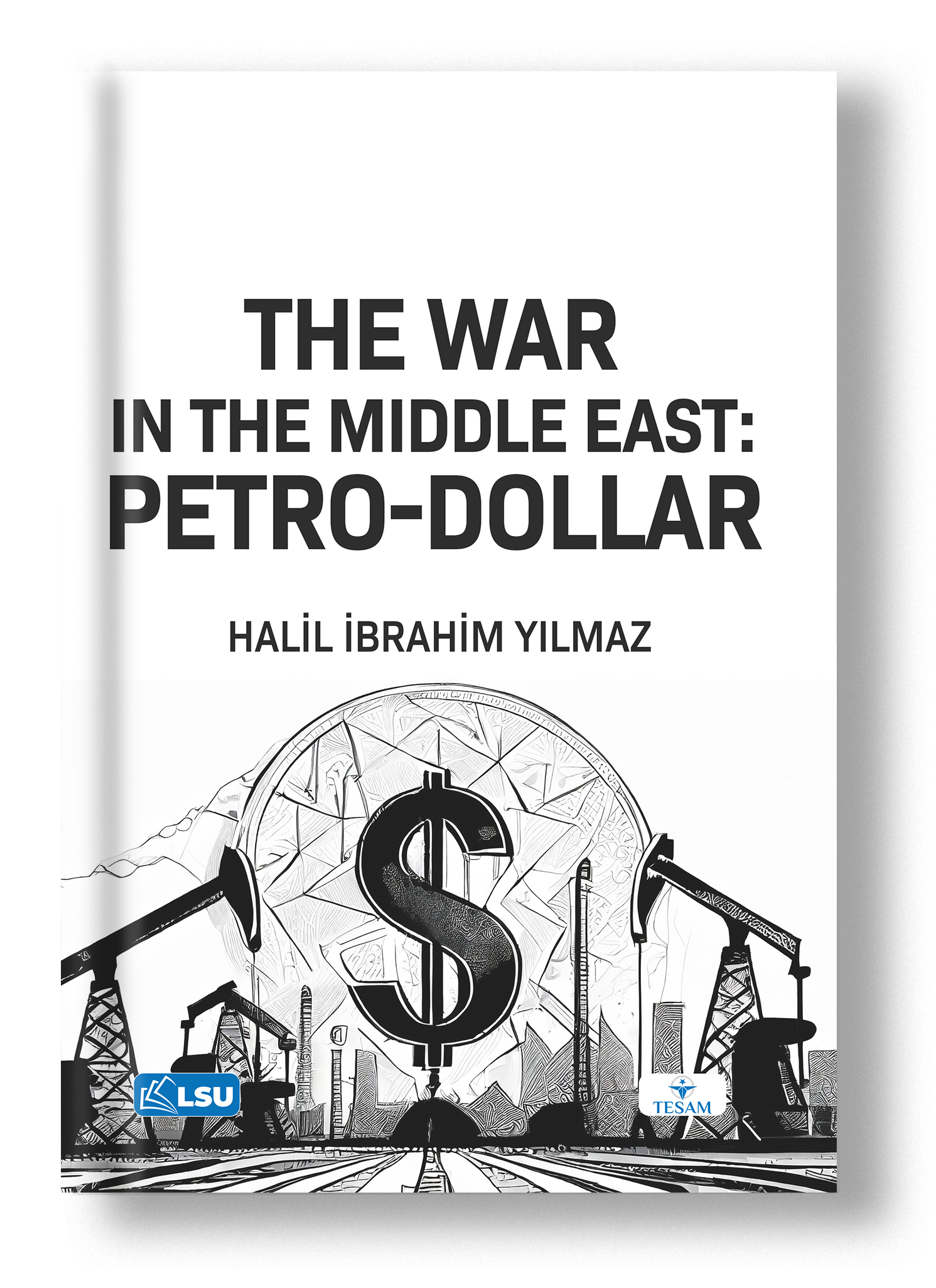TESAM YAYINLARI
Bilgi, İş birliği ve Yaratıcılığın Buluştuğu Nokta
The War in the Middle East: Petro-Dollar
The War in the Middle East: Petro-Dollar
| Editör | ||
|---|---|---|
|
The Middle East has become an important economic and political center since ancient times for humanity. The Middle East, which hosted the birth and development of many civilizations, has never lost its importance in the historical process, for it is located on trade routes linking east and west and hosts major rivers such as the Nile, the Euphrates, the Tigris, and the Suez Canal, which opened in 1869 and has facilitated trade. The main thing that makes the Middle East important today is the oil that was discovered in the late 1800s. The Middle East is the world's richest region in both oil and gas reserves. As a matter of fact, this situation makes the Middle East important in itself. After oil became the world's most valuable and unique raw material, revolutions, wars, and coups erupted everywhere oil was mentioned, and the people of those countries suffered as a result. The Middle East took its toll on this situation, and the struggle for hegemony of the rulings could never bring real peace to the Middle East. Oil, blood, and policies are mixed in the Middle East. Especially the world economy's hearts have tarted to beat in the Middle East since the 1950s. A breeze in the area caused the breaking of the big storms for the world economy. Today, oil is still both the most important source of energy and movement in the development of civilization and one of the most controversial issues in world politics. Oil, the protagonist of political and economic conflicts, will continue to be the main actor in these conflicts in the future, as it is today with the acceleration of industrial development and the rapid increase in the world population. |
||
| Konular | Economy Petrol Oil War Economic Warfare | |

| Tür | Akademik Kitap |
| ISBN | 978-625-98926-7-2 |
| E-ISBN | 978-625-98519-2-1 |
| Yayıncı | TESAM Yayınları |
| Yayın Tarihi | 20.09.2023 |
| Kapak (PDF) | |
SATIN AL
Henüz satın alma bağlantısı eklenmemiş.
